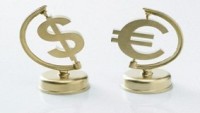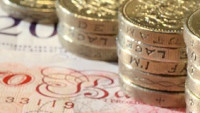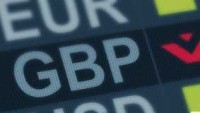 Foreign exchange markets were under the spell of political developments in the absence of important economic news, with developments in Japan, the US and Spain more or less setting the tone.
Foreign exchange markets were under the spell of political developments in the absence of important economic news, with developments in Japan, the US and Spain more or less setting the tone.
The yen was the session’s biggest loser as Prime Minister Abe’s comfortable win over the weekend meant the probable continuation of fiscal and monetary stimulus in the world’s third-largest economy. Dollar/yen briefly pierced the 114 level to trade at a three-month high of 114.09 before backing down to 113.77. The continuation of the weaker yen trade could remain in place under the new mandate that Abe has secured, given of course that risk sentiment remains broadly positive. In the event of risk aversion and negative geopolitical developments, the yen could receive a boost despite Abe’s policies.
The US dollar was doing relatively well as optimism about possible tax cuts agreed by the Congress and President Trump was tempered a little as Fed Governor Jerome Powell seemed to be taking a lead in the race of who will be the new Fed Chair in 2018. Previous speculation had placed John Taylor as the leading candidate, who is seen as more hawkish on interest rates. In the past, Taylor has advocated a more rules-based approach to setting interest rates and as a result interest rates could be somewhat higher in the event he is chosen to lead the Fed.
The euro was under continued pressure because of the turmoil in Spain’s region of Catalonia, where the Madrid central government has revoked the region’s autonomy in emergency measures taken over the weekend. The events in Catalonia have not been heavily priced in the euro but the region’s bid for independence combined with electoral gains by the far-right in Germany, have stopped the single currency from continuing to rally on the back of the more positive political news earlier in the year. Another key event to watch for this week is the ECB meeting on Thursday, where the pace of asset purchases for next year will be announced. The more the ECB cuts its monthly QE purchases, the stronger the euro will be but if on the other hand the market senses some hesitancy by the ECB to substantially reduce purchases, the euro could drop. Recent indications have been that the ECB will be reluctant to cut its purchases by too much and hence the euro’s inability to extend its rally. Euro/dollar was off during Monday’s trading at 1.1753, not far from the key 1.17 level which has served as support during the previous 3 weeks.
Finally, the pound recovered from its lows of the previous week on signs that the UK was adopting a more conciliatory approach in its Brexit negotiations. The UK’s rhetoric has been toned down somewhat and the British Prime Minister was making positive overtures regarding the rights of the EU citizens presently residing in the UK. Pound/dollar gained to 1.3188.
Today’s economic calendar is particularly quiet as only Eurozone consumer confidence is on tap. The market will no doubt closely follow political developments in Japan, Europe and the United States.
Origin: XM













